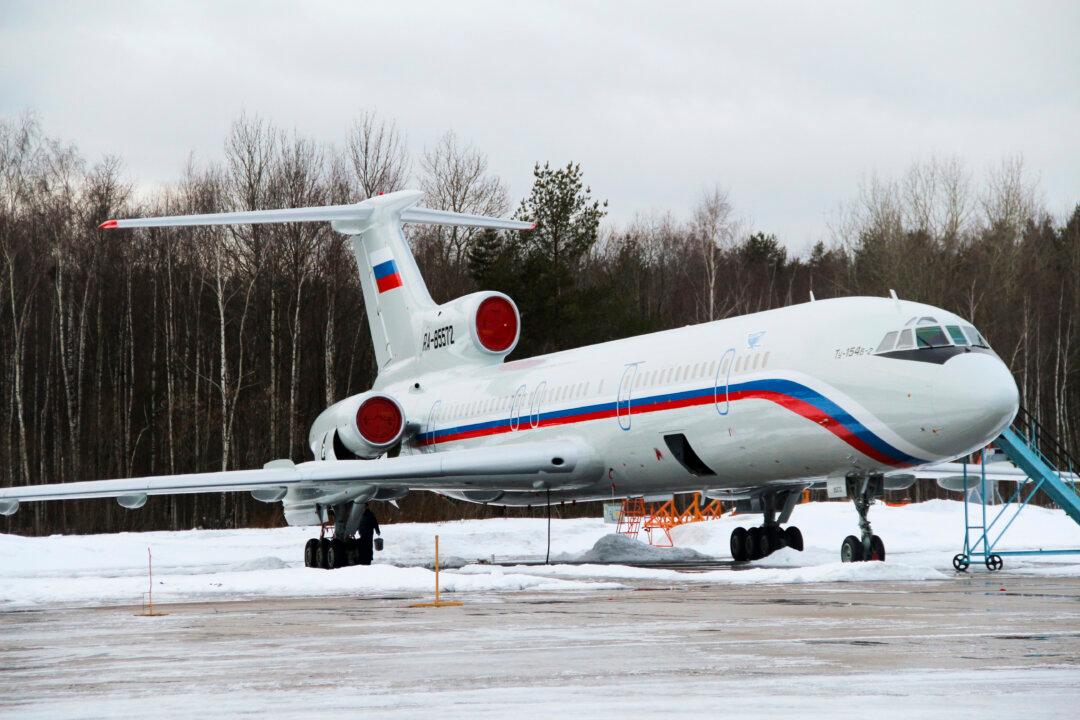A Russian aircraft flew over Area 51 in southern Nevada as part of the Open Skies Treaty, according to a report.
The Drive reported that a Tu-154M was captured flying over several military bases in the western United States, including the infamous Area 51. The flight occurred on March 28, starting at Travis Air Force Base in California.





